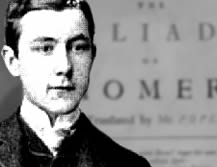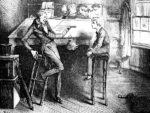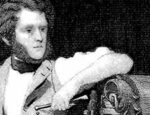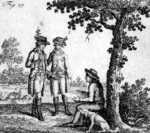Description
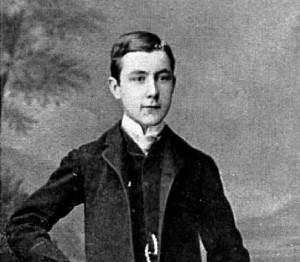 Listen to Henry Hawker, the 13-year-old son of a coachman, read Homer out loud in English to his local vicar. In 1917 Henry Edward Hawker (1870-1918) was Stationmaster at Stonehouse, Gloucestershire, after 32 years of service to the Great Western Railway Company. In 1883 he was paid 3 shillings a week for reading Pope’s Homer to the Rev. Turner, Curate of St. James, Taunton.
Listen to Henry Hawker, the 13-year-old son of a coachman, read Homer out loud in English to his local vicar. In 1917 Henry Edward Hawker (1870-1918) was Stationmaster at Stonehouse, Gloucestershire, after 32 years of service to the Great Western Railway Company. In 1883 he was paid 3 shillings a week for reading Pope’s Homer to the Rev. Turner, Curate of St. James, Taunton.
“Just before leaving school the Rev. Turner, curate of St. James (who lived in rooms above some offices in Hammett Street and was studying), came to the school and asked to hear some boys read, accordingly I, with two others, was brought before him and tested, we knew not what it was for, but I was asked to go on the following morning at eleven o’clock to his rooms, and found I was required to read “Homer,” which presumably Mr. Turner was comparing with the original Greek, as he would occasionally stop me to make a correction, sometimes the error was mine, and sometimes his, this I did for two hours daily (on Saturdays three hours). It was dry work in more senses than one. For this I was paid 3/- per week; this was the first money I earned.”
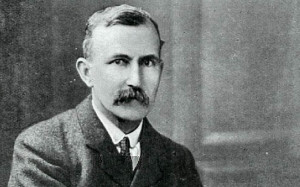 Although Hawker admitted in his memoir to finding the process ‘dry work in more senses than one’, in later years he grew as fond of literature as he was of music. He proudly lists in his autobiography both his favourite books and music (of which he became a connoisseur). Among his book list are to be found the vernacular classics of John Dryden’s translations of Virgil, Thomas Babington Macaulay’s Lays of Ancient Rome (based on Roman history drawn largely from Livy and stylistically enhanced by imitations of Homer’s Iliad) and – lo and behold – Alexander Pope’s Homer.
Although Hawker admitted in his memoir to finding the process ‘dry work in more senses than one’, in later years he grew as fond of literature as he was of music. He proudly lists in his autobiography both his favourite books and music (of which he became a connoisseur). Among his book list are to be found the vernacular classics of John Dryden’s translations of Virgil, Thomas Babington Macaulay’s Lays of Ancient Rome (based on Roman history drawn largely from Livy and stylistically enhanced by imitations of Homer’s Iliad) and – lo and behold – Alexander Pope’s Homer.

